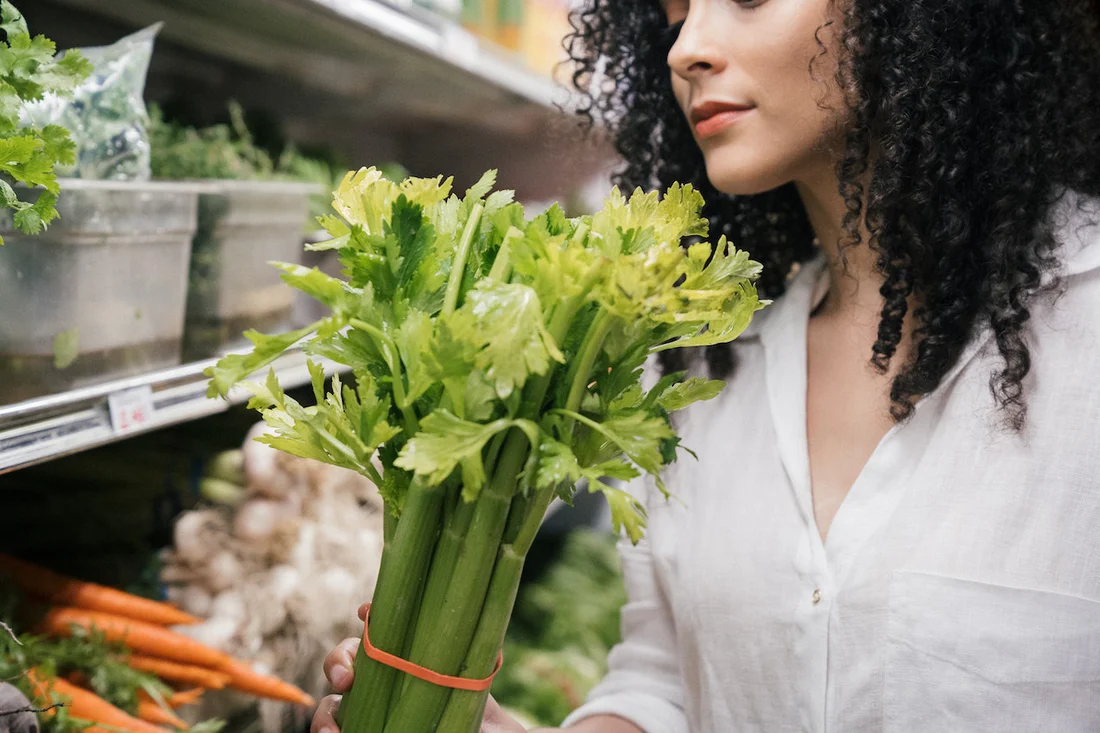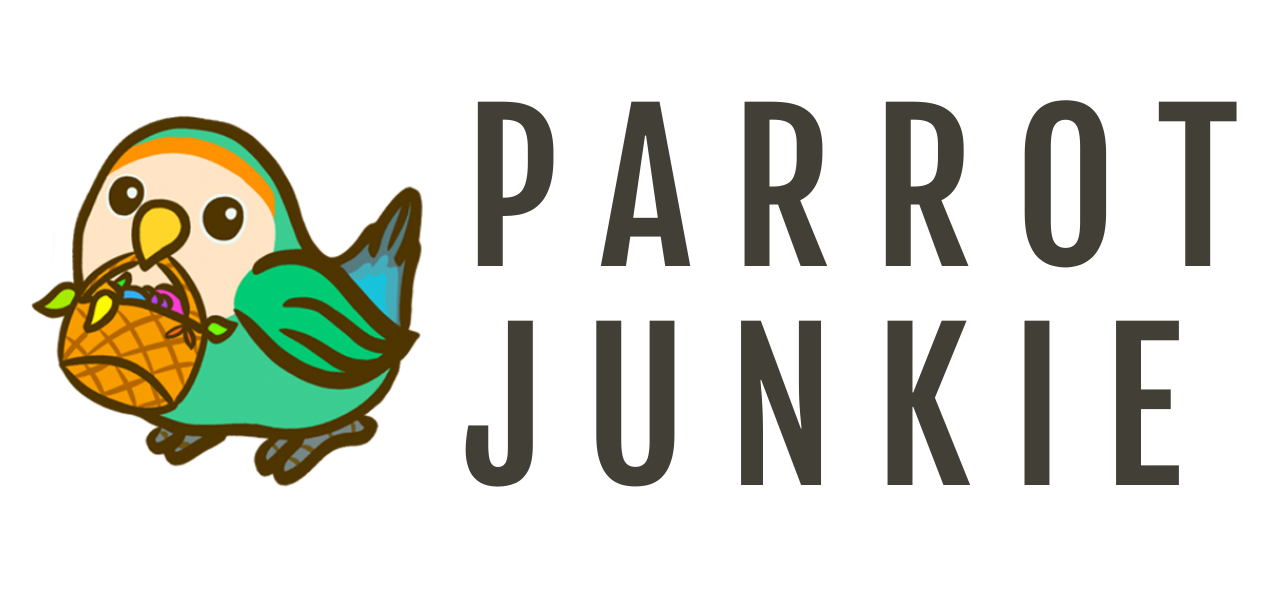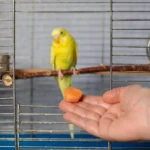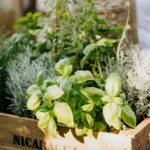
Can Parrots Eat Celery – Safe or Toxic?
While parrots can enjoy celery as an occasional treat, it’s important to be mindful of its nutritional composition. While celery doesn’t have a sweet taste, many parrots are attracted to its crunchy and juicy texture. However, due to its low calorie content and high water content, celery may not be the ideal vegetable for regular inclusion in a parrot’s diet.
Celery can still be considered a healthy food option for parrots, especially for those that need to manage their weight. Additionally, celery is rich in fiber, which plays a vital role in supporting digestion and providing mental stimulation for parrots.
It’s crucial to offer celery to your parrot in moderation. Excessive consumption of celery can result in watery droppings in parrots due to its high water content. Moreover, celery contains psoralens, which can lead to increased sensitivity to ultraviolet (UV) light if consumed in large quantities. For these reasons, it is not highly recommended to feed celery to parrots on a regular basis.
Jump To Section
Is Celery Good for Parrots?
Celery can be healthy for your bird. It contains the following beneficial nutrients:
Vitamin A
Celery contains vitamin A, a nutrient that is very essential in parrots. Vitamin A is responsible for maintaining healthy eyesight, skin, and feathers. It’s one of the reasons parrots have yellow, blue, orange, and red pigmentations.
Vitamin B9 (Folate)
The vitamin B9 in celery promotes metabolic processes and growth of cells in parrots. Parrots with stunted growth, anemia, and body parts malformations may be experiencing vitamin B9 deficiency. Supplement vitamin B9 in case you observe such symptoms in your bird.
Vitamin C
Vitamin C is an important nutrient present in celery. It plays the following roles in parrots:
- Boosts immune system
- Regulates blood pressure
- Reduces risk of kidney diseases
Parrots start engaging in self-destructive behaviors, such as excessive chewing, feather plucking, and tearing when vitamin C is deficient in their bodies. That’s why you should always feed your parrots the right amount of vitamin C to keep them calm.
Vitamin K
Celery contains small amounts of vitamin K that facilitates strong bone formation and blood coagulation in parrots. Therefore, it’s important that you supplement vitamin K either from other sources of food or celery to enable your bird to recover well after a minor injury.
Iron
Like in many other foods, iron is naturally present in celery. It’s essential for growth and development in parrots. Iron is also in charge of transporting oxygen from lungs to tissues in birds.
Magnesium
Magnesium is an important mineral that is found in celery. Magnesium mainly helps in:
- Regulation of blood pressure
- Promoting nerve and muscle function
- Boosting the immune system
Fiber
Celery is an excellent source of fiber, which keeps the digestive system of parrots healthy. Fiber is also associated with a lower risk of cancer and heart disease.
Antioxidants
The antioxidants present in celery prevents or delays cell damage in parrots. This is why we find celery to be healthy since it’s a good source of antioxidants.
Potassium
Potassium is an essential mineral found in celery that reduces levels of stress and regulates blood pressure levels in parrots. It enhances proper functioning of the nerves, fluid balancing, and muscle contraction as well.
Calcium
Celery contains calcium, which is another essential mineral that is often associated with healthy bones, feathers, and teeth in birds. Sufficient calcium in a parrot’s body also reduces muscle pain and lowers the risk of heart diseases.
Do Parrots Love Celery?
Many parrots seem to enjoy eating celery, most properly due to the crunchy texture. Besides, parrots like holding onto the celery stem using their claws as they tear it apart, so it also acts as a toy for their enrichment. However, some parrots tend to be picky and there’s a chance your parrots may dislike this particular type of vegetables.
That’s absolutely normal, and after all there are many other alternative vegetables, which you can offer your feathered friend.
Things To Note When Feeding Celery to Your Bird
There are things you should be aware of before feeding celery to your parrots, including:
Crop impaction
Celery contains a lot of fiber, which can get stuck in your bird’s crop. Crop is where the food is stored prior to digestion. So, when a parrot gets crop impaction, an interference of the normal movement of food occurs. This results in partial or complete blockage of food passage.
Symptoms of crop impaction include:
- Vomiting
- Reduced appetite
- Weight loss
- Dehydration
- Depression
- Frequent regurgitation
Therefore, you should remove the stringy parts from celery before feeding it to your parrot to prevent crop impaction, or chop the celery into short pieces to reduce the lengths of the strings. If crop impaction is left untreated, the affected parrot may end up suffering from:
- Yeast infections
- Bacterial infections
- Fungal infections
- Hypocalcaemia
- Death
Presence of pesticides
Pesticides are often sprayed on celery to protect them from pests. Parrots are very sensitive to such chemicals. Organic celery is recommended since it’s free from any pesticides. It’s not easy to differentiate organic celery from inorganic unless you grow them by yourself.
So, to avoid harming your bird, you can find ways to remove as much chemical as possible from the celery that you purchase. For example, you can soak the celery in a solution of baking powder and water for about an hour, then rinse it thoroughly afterwards.
Watery poop
Celery contains 95% of water. That’s quite a lot of water! Therefore, when feeding celery to your birds, you might notice that their stools are more watery than usual.
Can Parrots Eat Celery Leaves?
You can offer your parrots celery leaves, but not on a daily basis. Celery leaves contain psoralens, a toxic substance, which causes parrots to become more sensitive to the harmful effects of UVA radiation. This substance is more prevalent in raw celery, and this is why celery should not be fed frequently. You can cook the celery by boiling to reduce the amount of psorelens in the vegetable.
Can Parrots Eat Celery Seeds?
Celery seeds are derived from a dry ancient wild celery plant. It’s safe to feed celery seeds to your parrots. They are an excellent source of nutrients for your parrots and can support bone health, and promote red blood cell formation. However, your parrot may not like the taste of celery seeds. Parrots prefer other types of seeds over celery seeds.
How Can I Feed Celery to My Parrots?
Offering it whole (chopped)
First, soak the celery in a mixture of baking soda and water for about an hour to remove all traces of pesticides. Remove large strings to prevent blocking the food passage. You may have to slice the celery into small pieces to reduce the quantity of strings.
Juicing the Celery
Alternatively, you may juice the celery into a bowl if you’re afraid of crop impaction. Juicing the celery is a great way to offer your birds celery. However, this totally depends on your bird. Not all birds are willing to drink celery juice. You can also mix it with a variety of juices from other vegetables and fruits to make it more palatable for your bird and to ensure it obtains some of the nutrients from the celery juice too.
Can Baby Parrots Eat Celery?
Yes, but there’s no need to put your baby parrot into a risk of crop impaction. Besides, celery is not an excellent addition to a baby parrot’s diet. You may have to choose other types of vegetables to promote faster growth and weight gain.
You can feed them celery juice instead. Mix the juice with other varieties of vegetables for your baby parrot to enjoy. Add bits of apple to give the juice a sweeter taste.
Final Notes
Celery may not be the best vegetable option to feed your parrots because it’s very low in calories. It also lacks most of the essential nutrients required for the general wellbeing of your bird. Nevertheless, this vegetable is generally safe for your feathered friend as long as you clean it well, and feed it in moderation. Parrots also enjoy the crunchy texture of celery.
Visit an avian veterinarian in case you notice any adverse health reactions after feeding celery to your pet bird.
Parrot Junkie www.parrotjunkie.com
Copyright © 2021-2024. All rights reserved.



Abubakr
8 September 2024
Amazing Article for pet diet safety